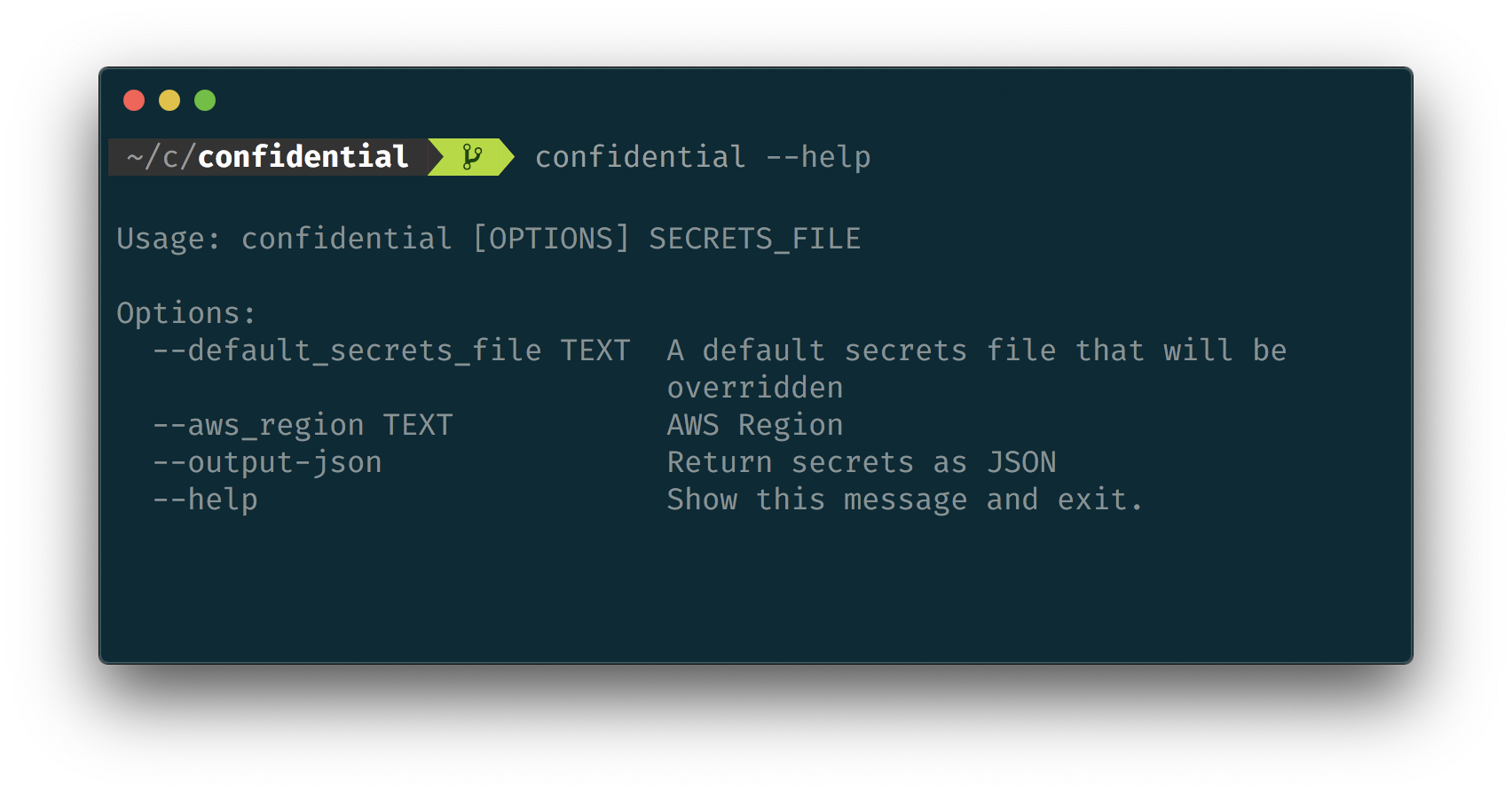https://github.com/candidco/confidential
🤫 Easily manage configs and secrets in your Python projects (with CLI support)
https://github.com/candidco/confidential
aws-secrets-manager aws-ssm-parameter-store cli python
Last synced: 9 months ago
JSON representation
🤫 Easily manage configs and secrets in your Python projects (with CLI support)
- Host: GitHub
- URL: https://github.com/candidco/confidential
- Owner: candidco
- License: apache-2.0
- Created: 2019-09-05T16:52:56.000Z (over 6 years ago)
- Default Branch: master
- Last Pushed: 2024-05-02T16:58:26.000Z (over 1 year ago)
- Last Synced: 2024-07-31T21:54:07.141Z (over 1 year ago)
- Topics: aws-secrets-manager, aws-ssm-parameter-store, cli, python
- Language: Python
- Homepage:
- Size: 184 KB
- Stars: 73
- Watchers: 24
- Forks: 7
- Open Issues: 2
-
Metadata Files:
- Readme: README.md
- License: LICENSE
- Codeowners: CODEOWNERS
Awesome Lists containing this project
- -awesome-django - confidential - Manage configs and secrets (with CLI support). (Third-Party Packages / Configuration)
- awesome-django - confidential - Manage configs and secrets (with CLI support). (Third-Party Packages / Configuration)
README


## Installation
```
pip install confidential
```
## How does it work?
Confidential manages secrets for your project, using AWS Secrets Manager and SSM Parameter Store.
First, store a secret in AWS Secrets Manager. Then, create a secrets file, say `my_secrets.json`. A value will be decrypted if the word `secret` precedes it, like the `database` value below:
```json
{
"database": "secret:database_details",
"environment": "production",
"debug_mode": false
}
```
Similarly, SSM Parameters can be referenced by providing a parameter key, e.g.: `"ssm:some_ssm_parameter_key"`.
You can decrypt this file either in Python, or directly using the CLI. Ensure [AWS CLI](https://aws.amazon.com/cli/) is set up, then run:
```bash
confidential my_secrets.json
```
which outputs the file with decrypted values
```json
{
"database": {
"url": "https://example.com",
"username": "admin",
"password": "p@55w0rd",
"port": 5678
},
"environment": "production",
"debug_mode": false
}
```

## Can I use it in my Python projects?
Yes, simply import and instantiate `SecretsManager`, like so:
`settings.py`
```python
from confidential import SecretsManager
secrets = SecretManager(
secrets_file=".secrets/production.json",
secrets_file_default=".secrets/defaults.json", # Overridable defaults you can use in common environments
region_name="us-east-1",
)
DATABASES = {
'default': secrets["database"]
}
```
If `export_env_variables` is set to `True`, each secret will also be exported as an environment variable, with the uppercase key as the variable name, e.g.:
```python
from confidential import SecretsManager
import os
secrets = SecretManager(
secrets_file=".secrets/production.json",
secrets_file_default=".secrets/defaults.json", # Overridable defaults you can use in common environments
region_name="us-east-1",
export_env_variables=True, # Optionally, export secrets as environment variables. Default is False.
)
# If the key of a secret is `api_key`, then the following is true:
assert secrets["api_key"] == os.environ.get("API_KEY")
```
Trying to access an inexisting key returns `None`. On previous versions, it would throw an exception.
# Testing
First, install all dependencies:
```bash
poetry install
```
Then run the tests
```bash
poetry run pytest
```